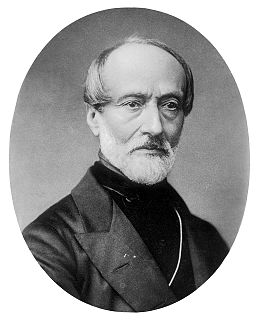A Quote by Christian Dior
A country, a style or an epoch are interesting only for the idea behind them.
Related Quotes
I love artists making cool music, regardless of the style.So, if a country artist making really cool music came along and asked me to work with them, I just might say yes, even though I'm not super-knowledgeable about country, like I am about hip-hop. I might do that because the idea is so interesting.
The mathematic, then, is an art. As such it has its styles and style periods. It is not, as the layman and the philosopher (who is in this matter a layman too) imagine, substantially unalterable, but subject like every art to unnoticed changes form epoch to epoch. The development of the great arts ought never to be treated without an (assuredly not unprofitable) side-glance at contemporary mathematics.
Postmodernism, the school of 'thought' that proclaimed 'There are no truths, only interpretations' has largely played itself out in absurdity, but it has left behind a generation of academics in the humanities disabled by their distrust of the very idea of truth and their disrespect for evidence, settling for 'conversations' in which nobody is wrong and nothing can be confirmed, only asserted with whatever style you can muster.
Italians don't have a unique style like France or Spain or Germany or the UK, it's different everywhere you go. The style of the girl in Milan is really architectural and modern. In Naples it's a completely different style, it's more dark. I'm sure our style was more precise in the past in the '50s or '60s where everything was very Sophia Loren. It's weird because obviously outside of Italy you think of one country, but when you're in the country you know how different the country is from the north to the center to the south to the island. There are so many differences.
The idea of, say, the compressed space between the floor and the object hanging over it and then the long space between the object and the ceiling was a kind of interesting idea for me - the idea of compressing and expanding. That was an idea that I worked with, which you could only do sculpturally. You can't really do with a painting on the wall.
There's not a whole lot of similarity between the two societies, Russian and American. There are similarities behind psychological forces. One thing we can learn is that things can change pretty fast. And this idea that we know who we are and that things can only get so bad in this country - that's wrong.
One can't write a weird story of real power without perfect psychological detachment from the human scene, and a magic prism of imagination which suffuses them and style alike with that grotesquerie and disquieting distortion characteristic of morbid vision. Only a cynic can create horror - for behind every masterpiece of the sort must reside a driving daemonic force that despises the human race and its illusions, and longs to pull them to pieces and mock them.
Lincoln has accepted America as a biracial society. He's talking about giving at least some black men the right to vote. In the Emancipation Proclamation he advises some blacks to labor faithfully for reasonable wages, here in the United States. He doesn't say anything about them leaving the country. He puts black men in the army. That is a whole different vision than simply saying "let's have them go out of the country." I think what's interesting is the change in Lincoln's view, but one must realize that he did adhere to this idea of colonization for many years.








































